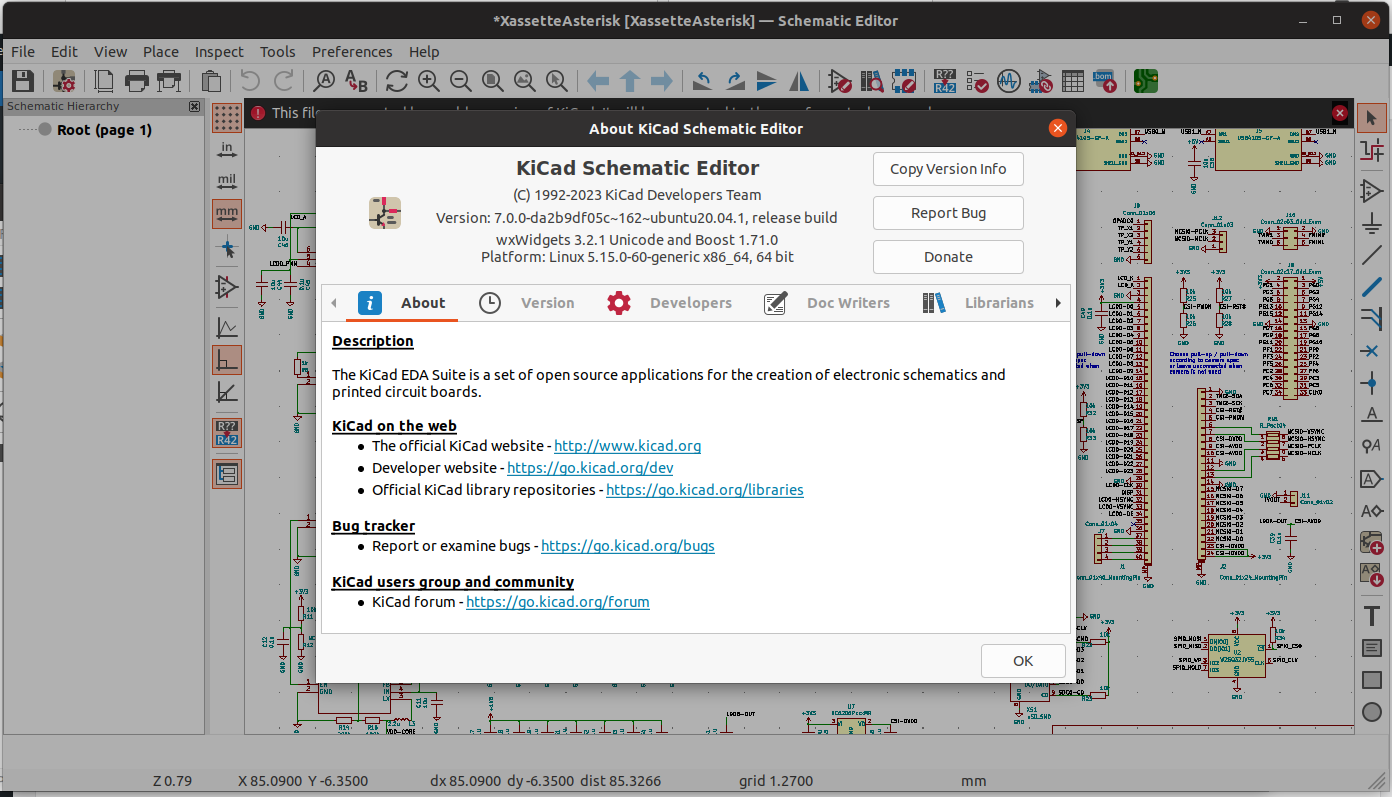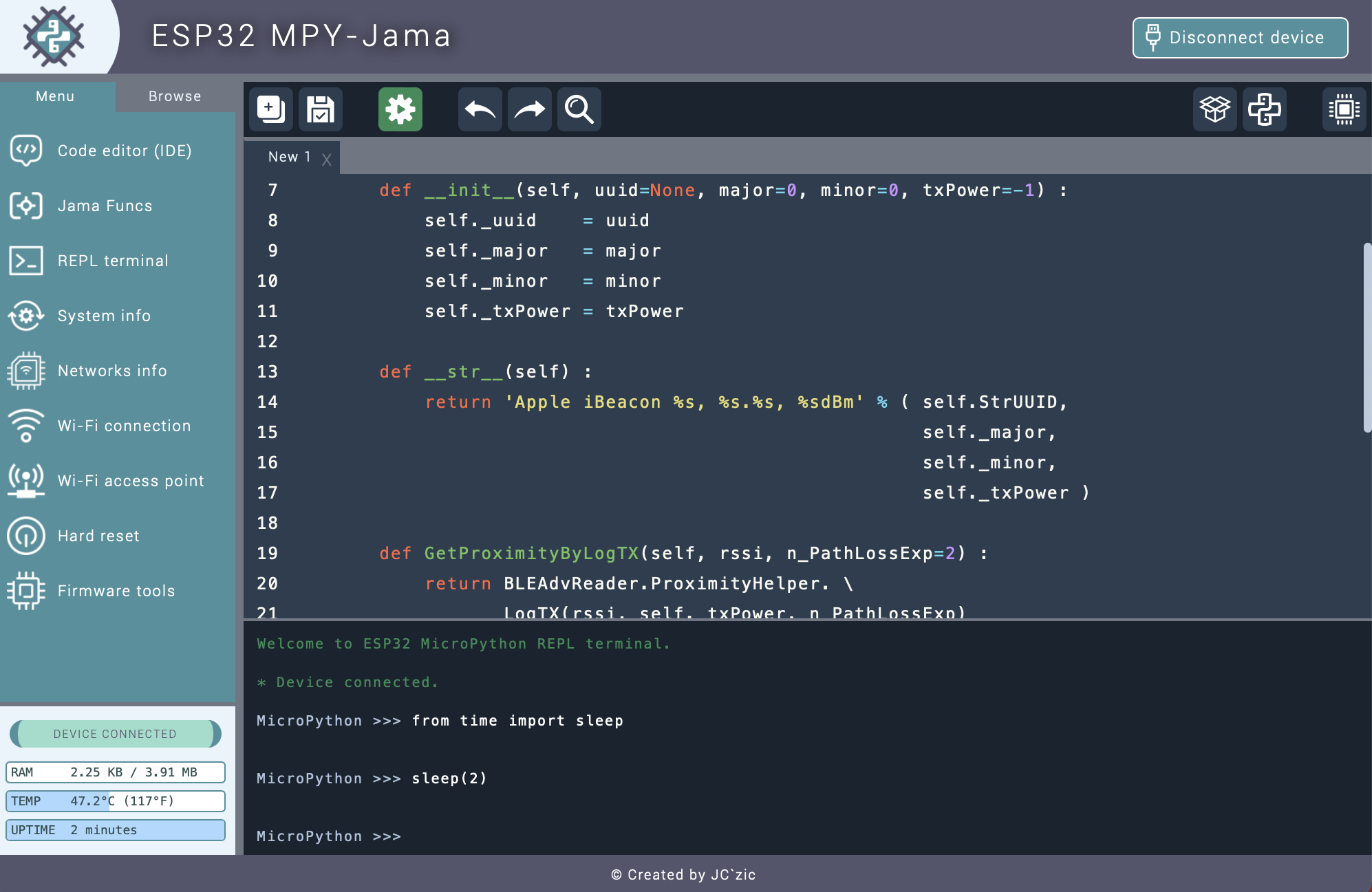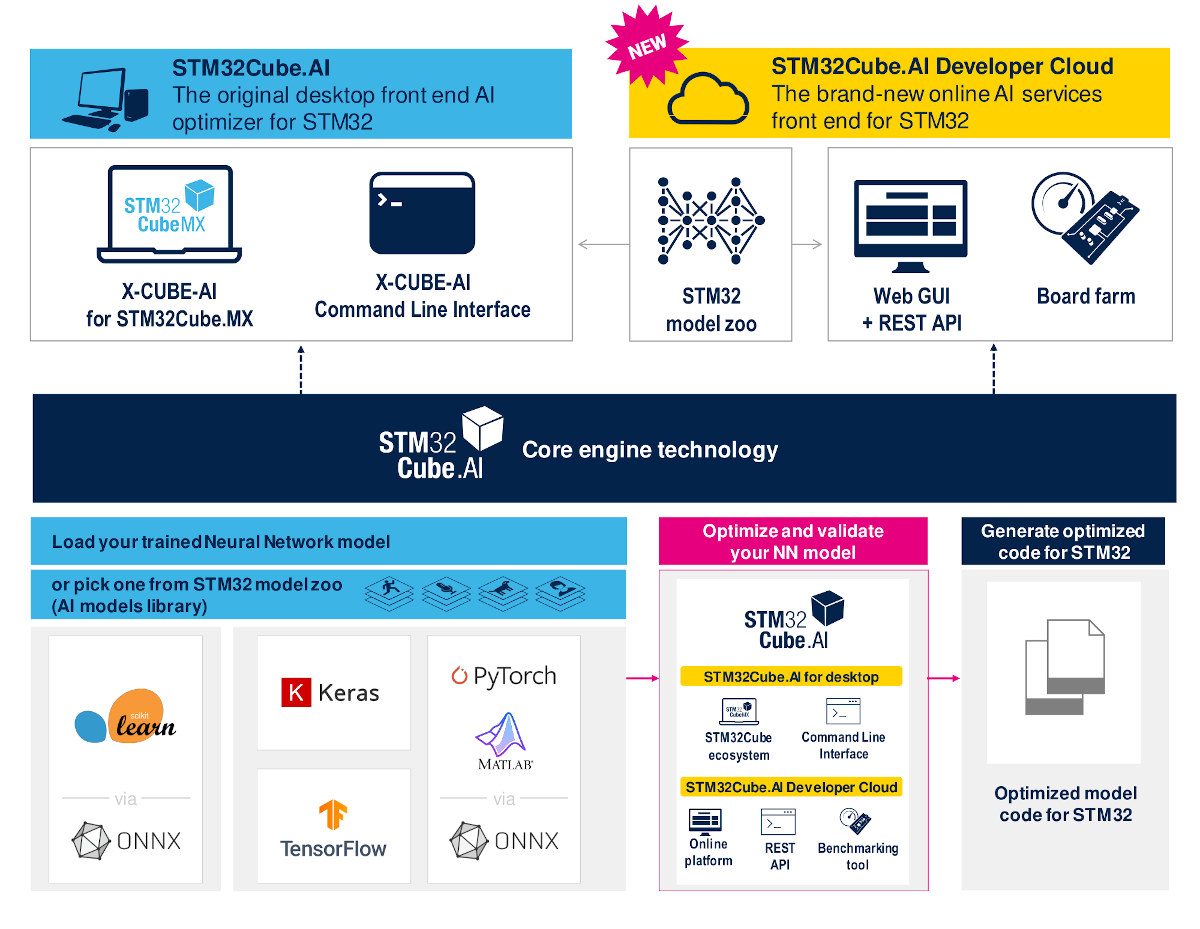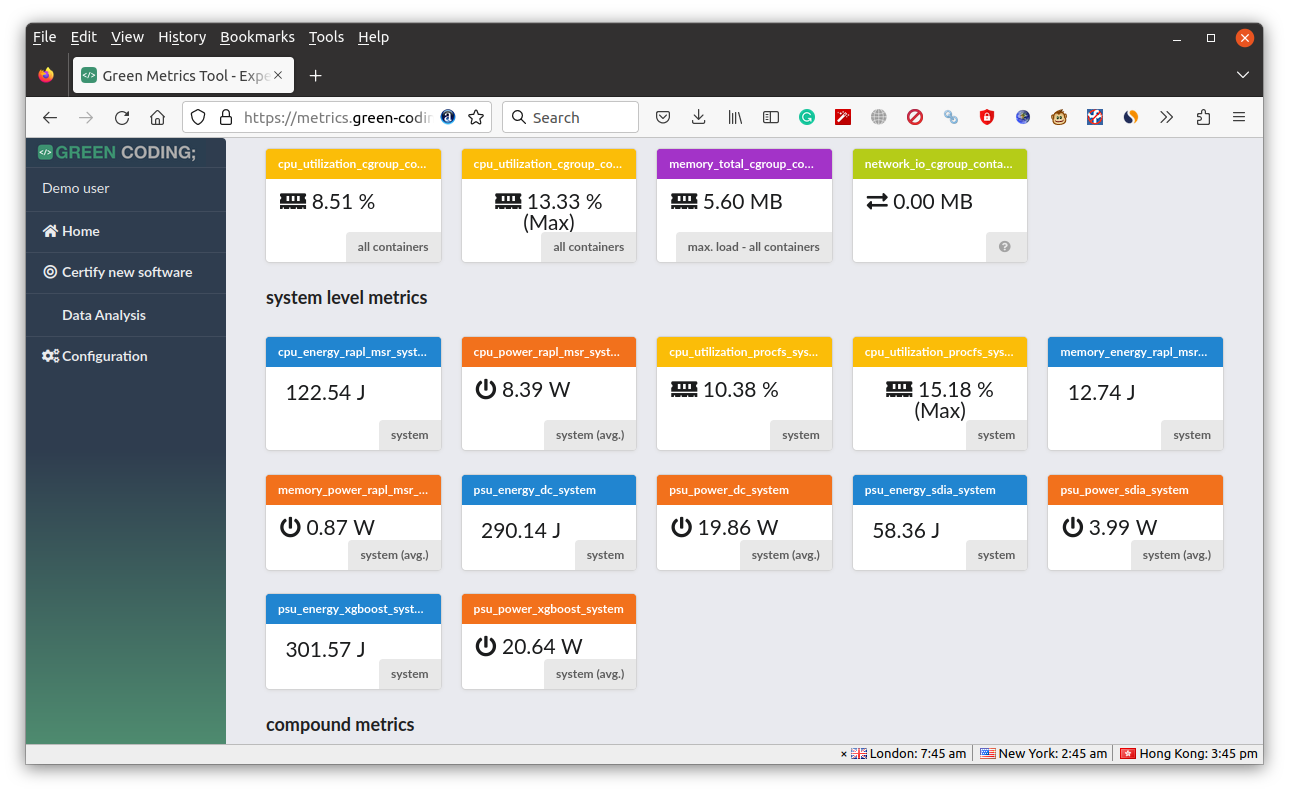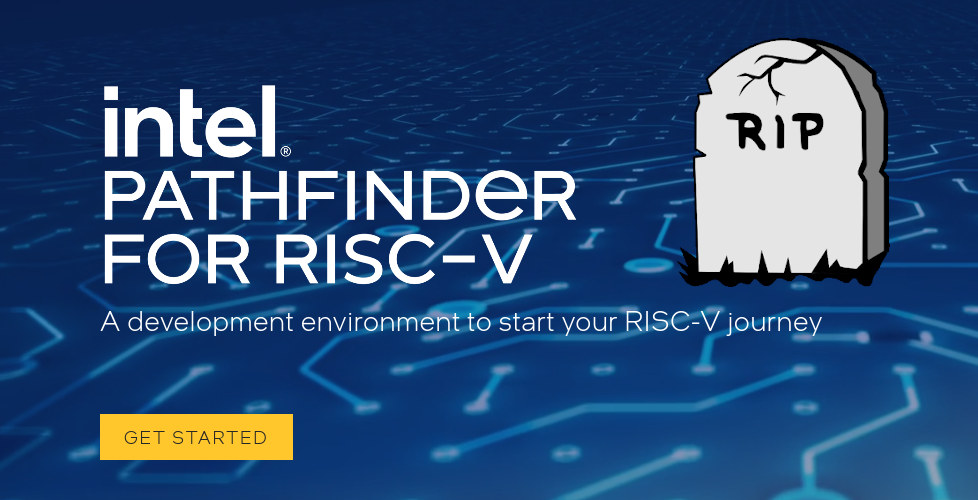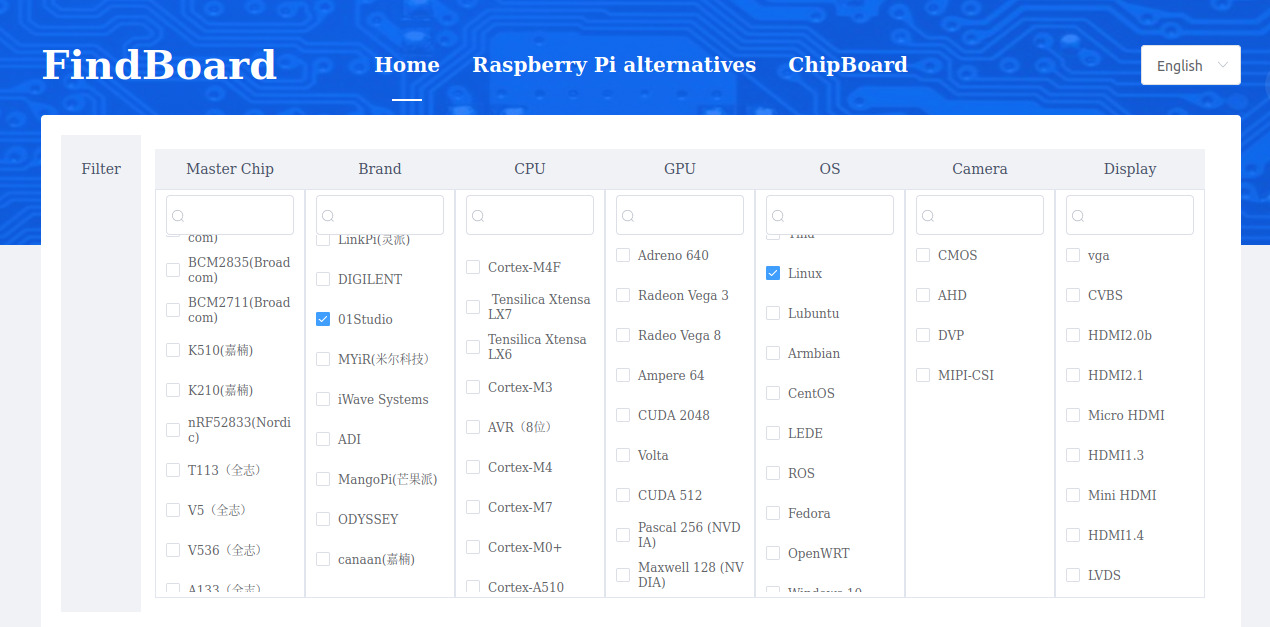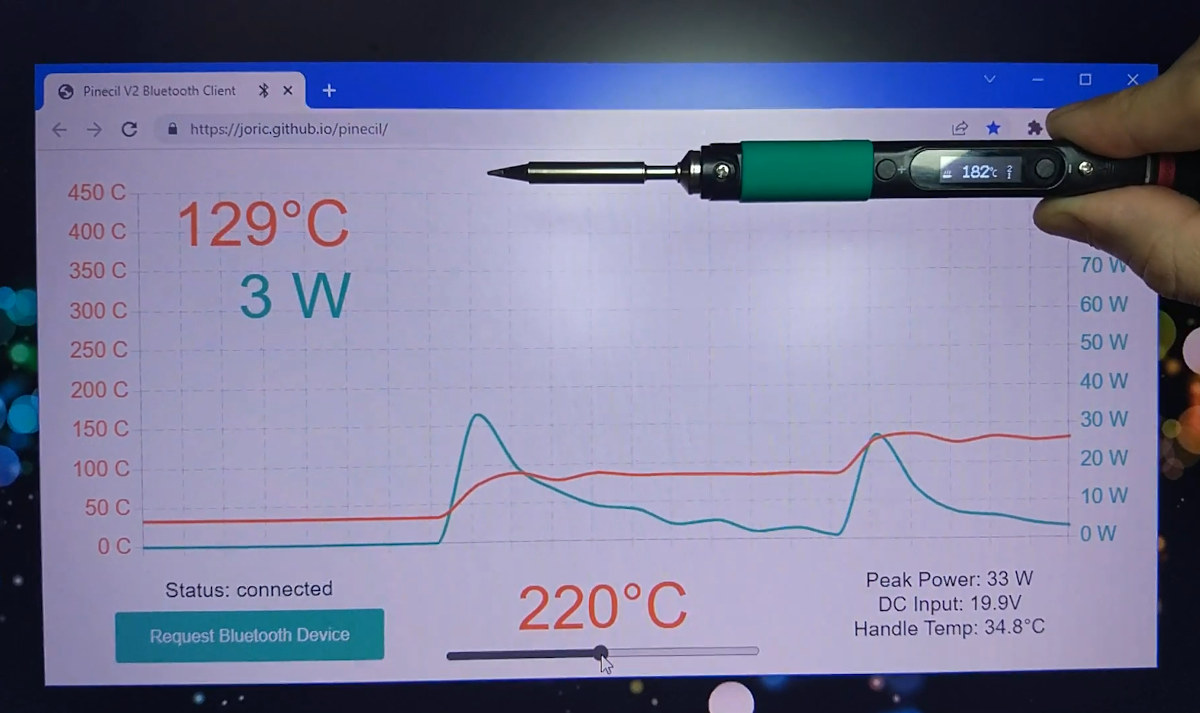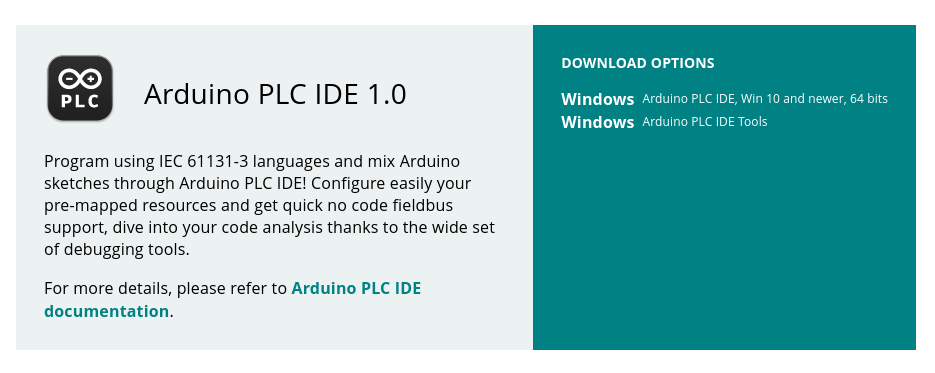KiCad 7.0.0 open-source EDA software has just been released with a range of new features from custom fonts to 3Dconnexion SpaceMouse integration to opt-in Sentry crash reporting, and many more. It took over three years between KiCad 5.0.0 and KiCad 6.0.0 announcements, but only a little over a year for the release of KiCad 7.0.0. Did KiCad developers acquire superhuman abilities or did AI get involved in the development somehow? Most probably not, and instead they change the release schedule to a yearly one, so we should get annual releases of the open-source EDA suite going forward, with KiCad 8.0.0 to be released in Q1 2024. Some notable changes to KiCad 7.0 include: Custom Fonts support is now available in the schematic, PCB, and worksheet editors to allow the use of any system font. Text box support was added in both the schematic and PCB editors. 3Dconnexion SpaceMouse support in […]
ESP32 MPY-Jama is a MicroPython IDE for ESP32 boards
ESP32 MPY-Jama is a cross-platform MicroPython IDE specifically designed for ESP32 boards with a file manager, a REPL terminal, real-time dashboards, and various ESP32-specific features. The IDE is an open-source Python program using pyWebView and pySerial plus some JavaScript for the user interface, and the developer of the program, Jean-Christophe Bos, provides binaries for Windows 64-bit and macOS 64-bit Arm or x86. It’s also possible to use it in Linux but needs to be built from source. Some of the key features of the ESP32 MPY-Jama IDE include: MicroPython code editor with syntax highlighting REPL interface Access to information dashboards with real-time data about WiFi and Bluetooth connections, system info with GPIO status, CPU frequency, memory and SPI flash details Easy 2-click methods to connect to WiFi and create an access point Graphical interface to install a new firmware through esptool Ability to create, import, and run “Jama Funcs” mini-applications […]
STM32Cube.AI Developer Cloud generates AI workloads for STM32 microcontrollers
STMicroelectronics has just announced the STM32Cube.AI Developer Cloud opening access to a suite of online AI development tools for the STM32 microcontrollers (MCUs) allowing developers to generate, optimize, and benchmark AI working on the company’s 32-bit Arm microcontrollers. The company sus the STM32Cube.AI Developer Cloud is based on the existing STM32Cube.AI ecosystem of desktop tools with the added benefit of being able to remotely benchmark models on STM32 hardware through the cloud in order to save on workload and cost. Some of the highlights of the online tools include: An online interface to generate optimized C-code for STM32 microcontrollers without requiring prior software installation. Access to the STM32 model zoo, a repository of trainable deep-learning models and demos. It currently features human motion sensing for activity recognition and tracking, computer vision for image classification or object detection, audio event detection for audio classification, and more. You’ll find those on GitHub […]
Green Metrics Tool helps developers measuring & optimizing software power consumption
The Green Metrics Tool (GMT) is an open-source framework that allows the measurement, comparison, and optimization of the energy consumption of software with the goal of empowering both software engineers and users to make educated decisions about libraries, code snippets, and software in order to save energy along with carbon emissions. While the firmware of battery-powered embedded devices and the OS running on your smartphone are typically optimized for low power consumption in order to extend the battery life, the same can not be said of most software running on SBCs, desktop computers, and servers. But there are still benefits of having power-optimized programs on this type of hardware including lower electricity bills, a lower carbon footprint, and potentially quieter devices since the cooling fan may not have to be turned on as often. The Green Metrics Tool aims to help in that regard. The developers explain how that works: […]
Intel kills PathFinder IDE for RISC-V processors
Intel has just discontinued PathFinder Eclipse-based development environment for RISC-V processors with the website now reading: We regret to inform you that Intel is discontinuing the Intel Pathfinder for RISC-V program effective immediately. Since Intel will not be providing any additional releases or bug fixes, we encourage you to promptly transition to third-party RISC-V software tools that best meet your development needs. PathFinder was a pre-silicon open-source development environment with support for vairous RISC-V cores, a set of other IP’s, multiple operating systems, and toolchains. It allowed designers to create RISC-V SoCs to and run them on FPGA platforms such as the Terasic developer kit or Startix-10 GX evaluation kit. PathFinder appears to just be one of the casualties after Intel reported a loss for Q4 2022, and announced it will lose even more in Q1 2023 with Tom’s Hardware also highlighting Intel would stop investing in new products for […]
FindBoard is another single board computer database
Hackerboards.com single board computer database has been around for several years starting as Board-DB, but I noticed another one called FindBoard while browsing on Aliexpress with some more exotic boards. Hackerboards’ database currently features 467 SBCs and MCU boards, while FindBoard has 453 boards. There are some overlaps, but also boards that are not found in the first database. Many of the boards on FindBoard are Linux-capable, but they are also some microcontroller boards as we can see from the screenshot above. If Chinese is selected, the “Buy now” will redirect you to Taobao, and if it is English they will be a link to an Aliexpress page. There’s a parametric search function for FinderBoard single board computer database but it’s really only useful when selecting one single parameter because the system use “OR” instead of “AND”. So if select 01Studio and Linux as above, it will show results for […]
Pinecil V2 Bluetooth LE soldering iron gets a web interface
It’s now possible to make use of the Pinecil V2 soldering iron‘s Bluetooth LE connectivity through a web-based interface used to monitor and/or set the temperature and power of the RISC-V soldering iron. When the Pinecil V2 soldering iron was launched with a Bouffalo Lab BL706 RISC-V Bluetooth microcontroller last summer, we were told there were main potential cases to make use of the Bluetooth LE features: OTA firmware upgrade and remote telemetry and control. The latter is now being taken care of by Joric who has written a web application to visualize telemetry data and even control the temperature of the soldering iron. To be able to use the Bluetooth features, you’ll first need to install the latest Pinecil V2 firmware with blisp flashing utility before going to https://joric.github.io/pinecil to pair your soldering iron as explained in the wiki. Note the implementation relies on the Web Bluetooth API which […]
Arduino PLC IDE released for the Portenta Machine Control unit, and soon Opta micro PLC
The newly released Arduino PLC IDE supports the five languages defined by the IEC 61131-3 standard: Ladder Diagram, Functional Block Diagram, Structured Text, Sequential Function Chart, and Instruction List. With Arduino focusing more and more on the industrial side with its Arduino Pro family, the company unveiled the Arduino Opta Micro PLC for industrial application last month and said it could be programmed with traditional PLC languages such as Ladder and FCB as well as the Arduino 2.0.0 IDE. The company now seems to have created an all-in-one integrated development environment for such hardware with the Arduino PLC IDE supporting PLC languages with Arduino Sketches. The program now supports the Portenta Machine Control unit, but the upcoming Opta micro PLC will be added soon. The IDE integrates no-code Fieldbus configurators that allow users to manage CanOpen, Modbus RTU, and Modbus TCP communication easily, and Arduino also mentions “advanced monitoring and […]


